Related Research Articles

The politics of Bolivia takes place in a framework of a presidential representative democratic republic, whereby the president is head of state, head of government and head of a diverse multi-party system. Executive power is exercised by the government. Legislative power is vested in both the government and the two chambers of parliament. Both the Judiciary and the electoral branch are independent of the executive and the legislature. After the 2014 Bolivian general election, 53.1% of the seats in national parliament were held by women, a higher proportion of women than that of the population.
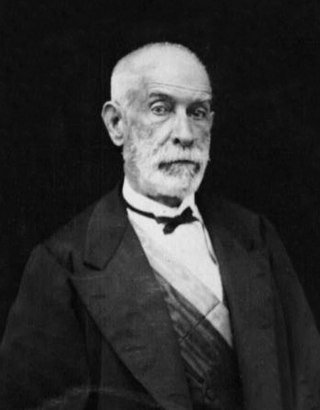
Tomás Frías Ametller was a Bolivian lawyer and politician who served as the 17th President of Bolivia twice nonconsecutively from 1872 to 1873 and from 1874 to 1876. Having graduated as a lawyer and worked as a merchant, he soon decided to enter the world of politics. His long political career began in 1831, when he was elected to represent Potosí in the Chamber of Deputies. This was followed by his first diplomatic posting when he was sent to France in Bolivia's first ever foreign delegation.

José María de Achá Valiente was a Bolivian general who served as the 14th president of Bolivia from 1861 to 1864. He served in the battles of the Peru-Bolivian Confederation and conspired against longtime dictator Manuel Isidoro Belzu (1848–55). Later, he was appointed Minister of War in the cabinet of another dictator, José María Linares (1857–61). In that capacity, he led the 1861 coup d'état that toppled Linares. Originally he governed as head of Junta, and then as sole leader of the revolutionary government but became constitutional president via elections.
1898 in the Philippines details events of note that happened in the Philippines in the year 1898.
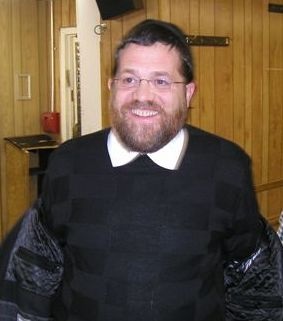
Jacob Ostreicher is an American businessman and investor. In June 2011, he was arrested in Santa Cruz, Bolivia, while overseeing a rice growing agricultural venture that he had invested in, and was jailed for 18 months on suspicion of money laundering, though he was never formally charged. Ostreicher maintained his innocence and stated that the allegations by the Bolivian government were "the scam of the century". His family and friends initiated a public effort to plea for his release, and actor-activist Sean Penn visited Ostreicher in Bolivia and pledged to work for his release.

Red ATB is a television channel in Bolivia. Its origins date back to 20 October 1984 in La Paz, when Paceña de Television began broadcasting. In the late 1980s the name was changed to ATB. The channel is one of the largest networks in Bolivia.

Pedro José Domingo de Guerra was a Bolivian jurist who served as the acting President of Bolivia in 1879 in the absence of Hilarión Daza who was personally commanding the Bolivian Army in the War of the Pacific between Chile, and an allied Bolivia and Peru. His grandson, José Gutiérrez Guerra, was also president of Bolivia between 1917 and 1920.

Corruption in Bolivia is a major problem that has been called an accepted part of life in the country. It can be found at all levels of Bolivian society. Citizens of the country perceive the judiciary, police and public administration generally as the country's most corrupt. Corruption is also widespread among officials who are supposed to control the illegal drug trade and among those working in and with extractive industries.
The Ministry of Justice and Institutional Transparency of Bolivia is in charge of the justice sector of Bolivia. In addition. the ministry includes the following vice-ministries:

Jeanine Áñez Chávez is a Bolivian lawyer, politician, and television presenter who served as the 66th president of Bolivia from 2019 to 2020. A former member of the Social Democratic Movement, she previously served two terms as senator for Beni from 2015 to 2019 on behalf of the Democratic Unity coalition and from 2010 to 2014 on behalf of the National Convergence alliance. During this time, she served as second vice president of the Senate from 2015 to 2016 and in 2019 and, briefly, was president of the Senate, also in 2019. Before that, she served as a uninominal member of the Constituent Assembly from Beni, representing circumscription 61 from 2006 to 2007 on behalf of the Social Democratic Power alliance.
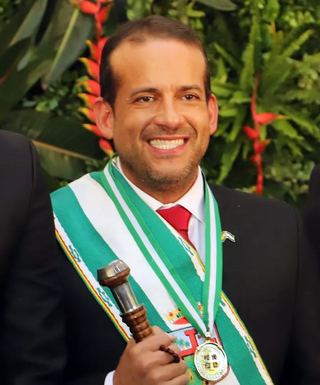
Luis Fernando Camacho Vaca is a Bolivian activist, businessman, lawyer, and politician serving as the 2nd governor of Santa Cruz since 2021. He is the leader of Creemos, opposition bench in the Plurinational Legislative Assembly and was the chair of the Santa Cruz Civic Committee in 2019.

The COVID-19 pandemic in Bolivia was a part of the worldwide pandemic of coronavirus disease 2019 caused by severe acute respiratory syndrome coronavirus 2. The virus was confirmed to have spread to Bolivia on 10 March 2020, when its first two cases were confirmed in the departments of Oruro and Santa Cruz.
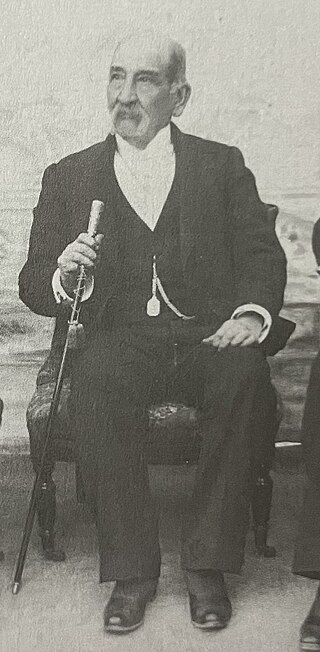
Serapio Reyes Ortiz was a Bolivian lawyer, professor, and politician who served as acting President of Bolivia in 1879, after the death of Pedro José de Guerra and the continued absence of Hilarión Daza, and as the ninth Vice president of Bolivia from 1888 to 1892. A member of the Conservative Party, he served as second vice president alongside first vice president José Manuel del Carpio during the administration of Aniceto Arce.

Arturo Carlos Murillo Prijic is a Bolivian businessman, hotelier, and politician who served as the minister of government from 2019 to 2020. As a member of the National Unity Front, he previously served as a senator for Cochabamba from 2015 to 2019 and as a plurinominal member of the Chamber of Deputies from Cochabamba from 2006 to 2010.
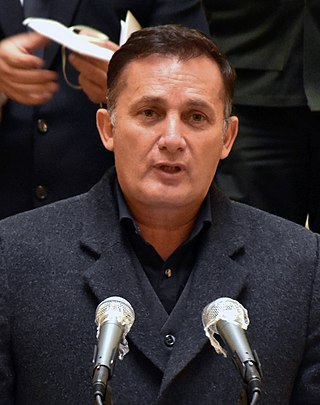
Luis Fernando López Julio is a Bolivian businessman, retired military officer, and politician who served as minister of defense from 2019 to 2020. Appointed in the tail end of the 2019 political crisis, López, along with Minister of Government Arturo Murillo, quickly became characterized as the "strong men" of the Jeanine Áñez administration and were implicated in the deadly events at Senkata and Sacaba. López was called to hearings by the Plurinational Legislative Assembly but failed to present himself three consecutive times, ultimately resulting in his censure by the legislature. As per the terms of the Constitution, he was dismissed as minister but, exploiting a loophole in the document's text, he was reappointed just a day later. Soon after, reports revealed his participation in the tear gas case, which accused the ministries of government and defense of irregularly purchasing non-lethal weapons at inflated prices.
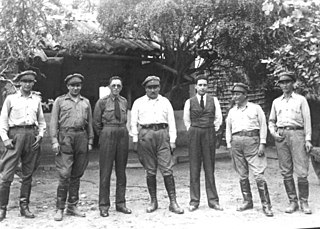
The 1934 Bolivian coup d'état, colloquially known as the Corralito of Villamontes, was a military coup in Bolivia that deposed President Daniel Salamanca in the midst of the Chaco War. Two days before the coup, Salamanca and his presidential delegation arrived at the military headquarters in Villamontes with the intent of removing General Enrique Peñaranda as commander-in-chief of the armed forces and replacing him with General José Leonardo Lanza. In response, on 27 November 1934, army high command directed a group of military officers led by Captain Germán Busch to arrest the president and force his resignation.

Severo Melgarejo Rojas was a Bolivian military officer, business man and guano magnate. He was the son of the President of Bolivia, Mariano Melgarejo, and his wife Rosa Rojas. He was considered a traitor by most Bolivians of his day due to his Chilean citizenship.

Quintín Quevedo Ferrari was a Bolivian military officer who rose to prominence after aiding Mariano Melgarejo in the overthrow of President José María de Achá in 1864. He was also a famous and early explorer of the Bolivian Amazon, exploring the Madeira River and the Beni savannah frontier. In 1872 he launched an invasion from Valparaíso, Chile, resulting in an international crisis which is believed to have led to a secret alliance treaty between Peru and Bolivia against Chile. Said alliance became effective with the Chilean occupation of Antofagasta and the Bolivian Litoral Department, leading to the War of the Pacific.

Carlos de Villegas was a Bolivian military officer, statesman, and politician who served during the War of the Confederation, the Peruvian–Bolivian War of 1841–42, and the War of the Pacific. He was a noted war hero in Bolivia, serving in several posts throughout his lifetime, including as Minister of War. He was the father of Bolivian General Carlos Manuel de Villegas.
References
- ↑ "Caso Ostreicher: Diez funcionarios de Gobierno formaban red de corrupción y extorsión". Los Tiempos. 2012-11-27. Archived from the original on 2012-11-30. Retrieved 2013-01-03.
- 1 2 "La red de extorsión exigía desde $us 5.000 a sus víctimas y contaba con jueces y fiscales "complacientes"". La Razón. 2012-12-26. Retrieved 2013-01-03.
- ↑ Valdez, Carlos (2012-12-19). "Judge's arrest ordered in widening Bolivia scandal". Associated Press. Retrieved 2013-01-03.[ dead link ]
- ↑ "Cae Boris Villegas, acusado de formar parte de la red de extorsión". Opinión. 2012-12-12. Retrieved 2013-01-03.
- ↑ Carlos Valdez; Frank Bajak (10 December 2012). "Extortion of American Stings Bolivian Officials". AP. Retrieved 13 December 2012.
- ↑ Lauren Effron; Alex Waterfield (28 November 2012). "7 Bolivian Officials Arrested, Accused of Extorting Jailed American Man". ABC News. Retrieved 13 December 2012.